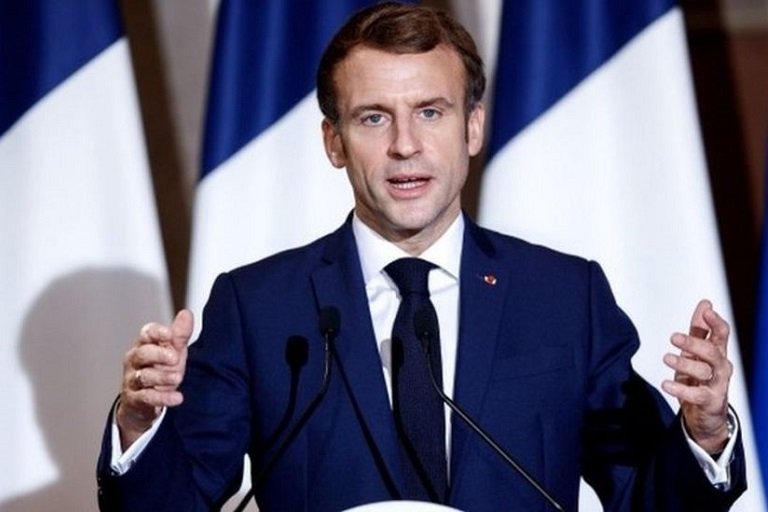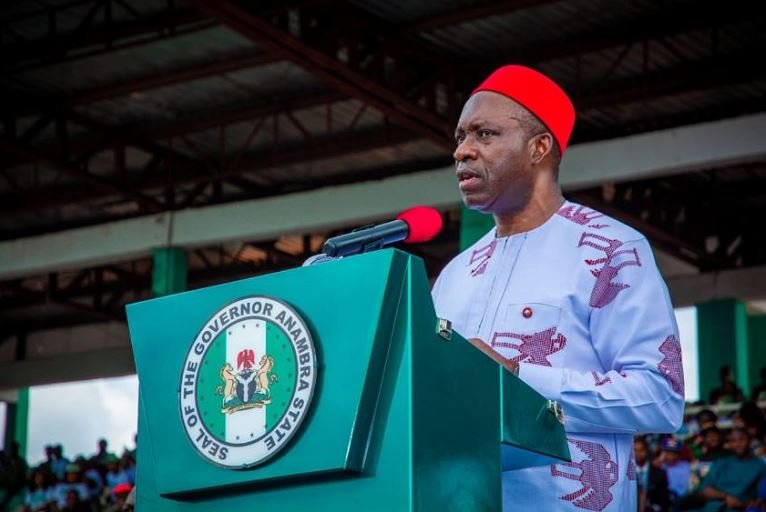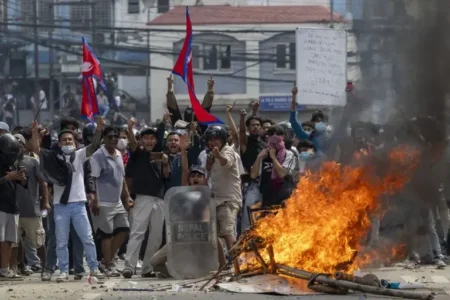Kaduna State Governor Uba Sani on Saturday warned opposition politicians against using the problem of insecurity as a political weapon, arguing that Nigeria’s security challenges cannot be remedied by “carpet-bombing” bandits out of existence.
Speaking during the public presentation of “Where I Stand,” a book written by the late Sheikh Abubakar Gumi and translated into Arabic by Sheikh Ibrahim Jalingo, the governor said politicians who advocated employing force to end insecurity were “playing politics with people’s lives.”
The event, hosted by Jamaátu Izalatul Bidáh Wa ‘iqamatus Sunnah in Kaduna, featured Governor Sani as the Special Guest of Honor and Chief Host.
“Some people think you can just deploy weapons and the problem will vanish. Whoever says this is simply playing politics. We must fear God and stop deceiving people because insecurity will not end that way,” he declared to applause from the audience.
Sani stated that the nature of insecurity in the Northwest differs from the Boko Haram insurgency in the Northeast, stating that whereas Boko Haram was motivated by religious fanaticism, banditry was fueled mostly by poverty, unemployment, and neglect of rural populations.
“Banditry is not ideological like Boko Haram. It is a symptom of poverty, youth unemployment, and the absence of schools, hospitals, and economic opportunities in rural areas. These are the real issues we must address to end insecurity,” the governor said.
According to him, the government’s plan must go beyond military force to address the socioeconomic foundations of the crisis.
“Insecurity cannot be resolved solely through guns. Our approach must include jobs for our youth, education, and healthcare for rural communities. That is the only way to win lasting peace,” he stressed.
Sani expressed concern over the dwindling number of security personnel in the country despite its population explosion in recent decades.
“In 1970, after the civil war, Nigeria had about 300,000 soldiers. Today, the number is less than 250,000, while our population has increased by over 100 million. How can anyone say guns alone will solve the problem? It is impossible,” he lamented.
Sani noted the lack of security presence in several rural areas of the Northwestas concerning.
“If you travel to Zamfara, Birnin Gwari, or the forests of Katsina, you can go for 50 kilometers without seeing a single policeman, not to mention a soldier. We have vast areas in this country without any security presence at all,” he noted.
He explained that the Kaduna Peace Model, which relies on dialogue and community involvement, was developed by local stakeholders and had yielded positive results in some troubled areas.
“In Birnin Gwari, for instance, the Emir himself led the process of restoring peace. We spent six months studying the root causes of insecurity there before taking any action,” he said.
He further stated that the findings of these encounters revealed that decades of neglect and a lack of social amenities drove many youths to commit crimes.
“People in these rural communities have no schools, no hospitals, and no commerce. When young people have no hope, crime becomes the only alternative,” he noted.
Sani asked that political leaders accept full responsibility for protecting their states rather than deflecting blame to the president or federal authorities.
“We should not deceive our people by saying President Tinubu or the National Security Adviser, Nuhu Ribadu, is responsible for their safety. They cannot leave Abuja to come to Birnin Gwari, Giwa, or Dansadau to solve our problems,” he argued.
He insisted that officials at the state and municipal levels collaborate with traditional rulers, religious leaders, and community partners to address instability.
“We were elected by the people. It is our duty to protect them by every means possible. That is why I chose a non-kinetic approach in Kaduna State—because it is I that God will hold responsible in the hereafter,” he said.
Recall that on Saturday, August 30, a coalition of opposition parties was attacked during the inauguration of a transition committee in Kaduna, when suspected political thugs invaded the venue with cutlasses, clubs, and stones, injuring people and damaging property.
Former Governor Nasir El-Rufai called it “a dangerous descent into lawlessness,” accusing police officers on the scene of standing idly by.











